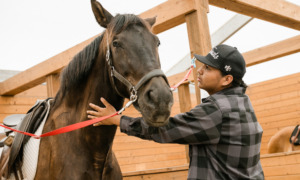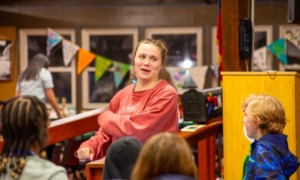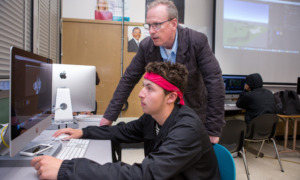 An April 15 article in Youth Today highlighting the alignment between chess and the critical thinking skills that are a prerequisite for success in our modern world, was correct in its observation that chess can indeed develop “deep thinking and planning ahead.” The game truly does offer youth a non-athletic opportunity to join with like-minded peers toward a common purpose. However, schools and Out-of-School Time (OST) programs must not assume that exposure to the game alone will inculcate those benefits. Programs must fully commit to chess programming by providing competent instruction, extended exposure to the game and opportunities for competition.
An April 15 article in Youth Today highlighting the alignment between chess and the critical thinking skills that are a prerequisite for success in our modern world, was correct in its observation that chess can indeed develop “deep thinking and planning ahead.” The game truly does offer youth a non-athletic opportunity to join with like-minded peers toward a common purpose. However, schools and Out-of-School Time (OST) programs must not assume that exposure to the game alone will inculcate those benefits. Programs must fully commit to chess programming by providing competent instruction, extended exposure to the game and opportunities for competition.
For the past 12 years, my program, ASAP/After School Activities Partnerships has run an OST chess initiative in schools, OST programs, libraries, recreation centers and places of worship across Philadelphia. Currently supporting more than 230 chess clubs and 2,800 students citywide, ASAP provides training, supplies and resources, and ongoing support to club leaders as well as more than 20 chess tournaments and events for youth each school year. Through our years of serving the young chess players of Philadelphia and the adults that teach them, we have identified the following promising practices:
Instruction
Although most schools and OST programs will predominately serve beginner and novice chess players they must still offer quality instruction, or else the students won’t develop. We have found that clubs that merely consist of free chess play quickly fold, as the students become alternately bored or frustrated with challenges too insignificant or too insurmountable. ASAP provides club leaders with eight hours of training on methods of teaching chess, spaced out over several weeks, with accompanying instructional materials. This prepares the club leaders to provide an engaging and structured environment to new chess students.
Engagement over time
Chess is a complicated game that rewards dedication. Prolonged exposure to chess increases the benefits imparted by the game. A semester-long club can provide a good introduction to the basics of chess and chess thinking, but a multi-year commitment is required to mold developing minds. A 2009 Temple University study found that any participation in chess correlated with higher results on statewide math and reading tests. Multi-year participation, however, correlated with increasing improvement — chess students scored higher each year that they were members of their school’s chess club.
Competition
We all require motivation to push ourselves to achieve. Young chess players are no different; clubs that never connect to the larger world of chess and chess competitions will always face an achievement ceiling. Competitions motivate students by offering a tangible challenge, an opportunity to represent a school or program, to be a team member and an opportunity to bring home a medal or trophy. At many tournaments, students will play four or five official matches against strangers as well as several other informal games — a concentrated dose of chess that sparks development. The high stakes of formal competitions push players to concentrate deeply and learn to interact with a variety of individuals — just the skills we want them to develop.
What, then, are the takeaways for OST programs that want to bring chess to their students? First, they must provide adequate training to their staff or seek qualified instructors. Second, they must commit to chess for the long haul, so students can develop with and through the game. Finally, programs must seek opportunities for competition, whether in the larger chess world or by creating them in the OST and school-based community. By following these practices, OST programs can use chess to help position their students for academic success in our pluralistic and global world.
Ben Cooper directs ASAP’s citywide chess program in Philadelphia, where he works to support educators and students with tools and opportunities to achieve in, and through, the game of chess.































